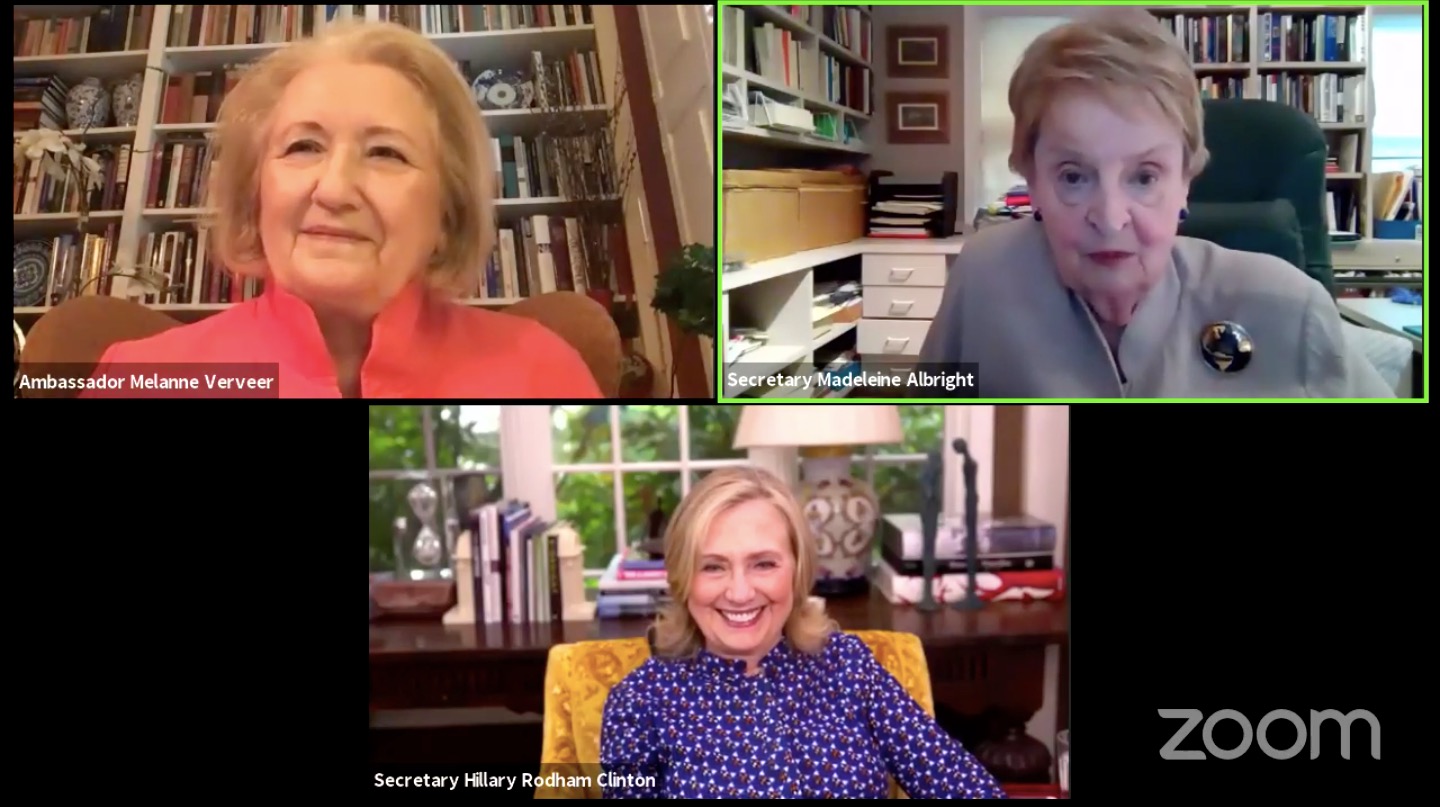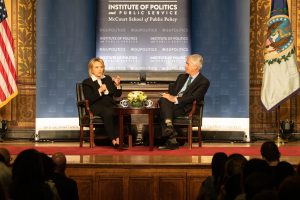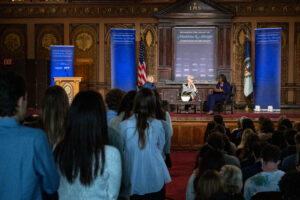Georgetown virtually held Beijing +25: Commemorating a Watershed Moment for Women’s Rights on Sept. 10. Ambassador Melanne Verveer, the current executive director of the Georgetown Institute for Women, Peace and Security (GIWPS), hosted Former Secretaries of State Madeleine Albright and Hillary Clinton on the 25th anniversary of the United Nations Fourth World Conference on Women: Action for Equality, Development and Peace. The event was viewed by members of the U.S. Delegation to Beijing, ambassadors, UN leaders, representatives of non-governmental organizations, journalists, and students across the world.
The event concluded with the announcement of a new collaboration between Clinton and The Rockefeller Foundation—The Beijing +25: Accelerating Progress for Women and Girls, which will aim to continually advance global gender equality.
Albright and Clinton heavily discussed the struggles leading up to the 1995 conference in Beijing, as well as the subsequent improvements in global education, childbirth, political involvement, and reduced discrimination for women since.
“We had a view back in the day, in the Clinton administration, that expanding the rights and roles and opportunities of women was an issue that had a moral and social imperative,” Clinton said. “That it would, if we were to make it a pillar of our American diplomacy, help to open eyes and ears, and change laws and regulations around the world that would actually enhance global prosperity and security.”
At the time in 1995, then-U.S. First Lady Clinton was thrilled to be invited to Beijing by the American Delegation headed by then UN Ambassador Albright. However, the decision did not transpire without complications. “Now, it was not without some controversy, as some of you remember,” Clinton admitted.
She went on to describe the problematic circumstances of her impending presence at the conference. “There were people who opposed any American involvement in a UN conference about women, and I quote, Republican Senators who were very outspoken in saying we shouldn’t go. It was anti-family, anti-women, the kind of arguments they had been making for a very long time,” Clinton said. “And there were those inside the administration who were fine about a delegation going, but didn’t think that then-first lady should go and give a speech on the international stage.”
With the support of her husband, President Bill Clinton, Clinton remained adamant in attending the conference with the blessing of the American government. Albright, meanwhile, deemed women’s rights as so significant she left her daughter’s wedding early to attend the conference.
Albright spoke in the formal session as a part of the U.S. Delegation, while Clinton spoke in a keynote setting. “If there is one message that echoes forth from this conference, it is that human rights are women’s rights… and women’s rights are human rights,” Clinton said in the most famous excerpt of her 1995 speech.
“You could see looks of recognition,” she said, reflecting on the speech’s impact at the event. “You could see people looking around when I said certain things, so I knew our message was being received and then I was delighted that it had such a galvanizing effect.”
The words have been known and recited for decades. “I have rarely seen over so many years a single message carry so much important meaning and have such a durable life,” Albright said.
The conference resulted in 189 countries agreeing to the Beijing Declaration and Platform for Action, which is now recognized as the most progressive blueprint in furthering women’s rights. Albright and Clinton were able to forge a close friendship, and together, integrated an agenda for women’s equality into the United States’ foreign policy. The effects of the conference remained relevant throughout the Bush and Obama presidencies.
Secretary Albright is also a distinguished professor of diplomacy in the School of Foreign Service, while Secretary Clinton is also the honorary chair of the Institute for Women, Peace and Security (GIWPS). She previously launched the U.S. National Action Plan for Women, Peace and Security at Georgetown.





